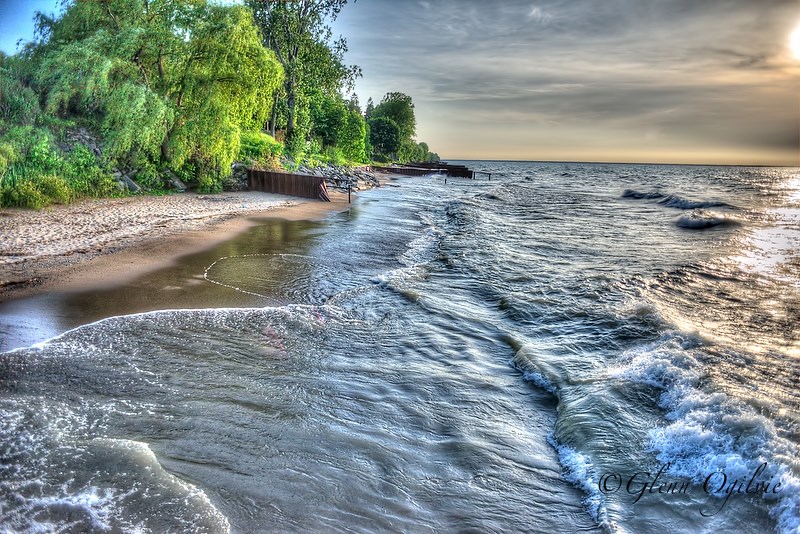Troy Shantz
Climate change is here, it will hit hard, and all we can do is prepare.
So says Gordon McBean, a professor at Western University’s Institute for Catastrophic Loss Reduction.
“The unfortunate thing is the climate is changing — at least until 2050, 2060 — even if we were to stop our emissions today, globally,” he told a standing-room-only crowd at a Jan. 8 Green Drinks forum.
The former assistant deputy minister at Environment Canada painted a sobering picture of what climate change will look like for generations to come.
Canada is warming at twice the global average, McBean told the monthly environmental roundtable, a result of growing concentrations of carbon dioxide and methane in earth’s atmosphere.

“As we go further north we get more warming, typically because the atmosphere is not so deep. The extra heat is melting more of the snow, so that makes less of the sunlight reflected,” he said. “There’s a variety of factors that come together. Russia is the same way.”
According to the World Economic Forum, extreme weather events including storms, drought and floods have surpassed nuclear war and cyber attacks as the greatest threats to civilization, McBean said.
And we’ve already seen what it looks like, he added. Canada’s most costly natural disasters all occurred in the past 25 years, including the 2016 wildfires in Fort McMurray, Alberta flooding in 2012, and the Quebec ice storms in 1998.
McBean produced maps of Canada indicating a substantial increase in flood-causing precipitation along a band stretching north of the prairies and down through southern Ontario.
British Columbia can expect much drier, wildfire-prone temperatures, he said.
But everywhere will experience warming, he said. Since the 1960s, the planet has warmed an average 0.2 degrees Celsius per decade. From 2030 to 2050 Ontario can expect temperatures to increase 1.5 to 2.9 degrees, he said.
Deadly heat waves, like those that killed 55,000 Russians in 2010 and 70,000 Europeans in 2003, could become the norm by the end of the century. Southern Ontario could see 75 days annually of 30 C. and higher, he said.
“That’s almost the entire summer.”
Climate change is already having an impact on mental health, he said. Anxiety about the future is rising among children and teens, and babies born to mothers stressed during the Quebec ice storm show lower IQ test scores, he said.
Canada’s commitment to curb greenhouse gas production, on schedule to be 722 megatonnes per year by 2030, will do little to stop what’s already underway, McBean said.
Reducing greenhouse gas emissions will help the long-term changes to earth’s climate, but the wheels are in motion and will be until at least 2050, he said.
As citizens brace for the impact they can also pressure decision-makers to heed the science, improve building codes and invest in disaster warning systems, he said.
“You can adapt … but at the same time be a vocal supporter. Politicians will respond to voters more than they’ll respond to (scientists).”
